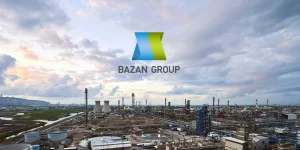Introduction
In light of the recent atrocities committed by the Israeli regime in Gaza and their ongoing nature, numerous new movements have emerged worldwide to counter these crimes. Non-governmental organizations (NGOs) striving to halt the Israeli regime’s actions in Gaza have initiated various initiatives, one of which includes imposing trade sanctions on the regime. Although the topic of sanctions against the Israeli regime is not new, various groups have been advocating for such measures for years under different titles, primarily focusing on boycotting products from companies that support the regime. However, some of the new proposed initiatives distinguish themselves by directly targeting key sectors of the Israeli economy, aiming to impact companies that maintain direct connections with the regime and operate within influential economic sectors. This represents a novel approach that is gradually taking shape.
Addressing the issue of sanctions against the Israeli regime has two facets: one involves research and identifying bottlenecks, while the other entails practical actions backed by research. This means identifying vulnerable points in various sectors of the Israeli economy and subsequently directing motivated social and political movements toward them. The following report will assess examples of actions taken by NGOs around the world to elucidate the issue of sanctions against the Israeli regime beyond the borders of Iran.
Jacobin
The American leftist media outlet Jacobin published an article in June 2024 emphasizing the necessity of imposing economic sanctions against the Israeli regime [1]. This article discusses Colombia’s sanctions against Israel, specifically the restrictions on coal exports to the regime, evaluating the outcomes of such measures. Recently, the President of Colombia signed a decree prohibiting coal exports to Israel to pressure the regime into ending the conflict in Gaza. Jacobin regards Colombia’s sanctions against the Israeli regime as a successful model for action and calls on other governments to follow suit. The article presents economic sanctions as an effective approach to compel the Israeli regime to cease its actions in Gaza.
The Geopolitics Group
The Geopolitics group [2], active in international relations, released a statement in November 2023 calling for sanctions against the Israeli regime by the European Union and countries within the Global South. The statement describes the Israeli regime’s crimes in Gaza and further asserts that sanctions are an effective tool for exerting pressure on the regime to halt its actions. The Geopolitics group demands sanctions against the Israeli regime in both diplomatic and economic forms and evaluates the substantial volume of foreign trade between the Israeli regime and the EU, concluding that economic sanctions would significantly impact the regime’s operations [3].
Oil Change International
On March 14, 2024, Oil Change International published an analytical report regarding the Israeli regime’s oil supply chain [4]. The report was prepared by Data Desk, a group specializing in energy-related data collection and processing. Oil Change International cites the International Court of Justice’s opinion on the Israeli regime’s war crimes in Gaza as a rationale for releasing this report. The document includes data on the companies, governments, and vessels involved in supplying oil to the Israeli regime, along with an assessment of the routes and methods of its oil imports.
No Harbour For Genocide Movement
The movement No Harbour For Genocide is an alliance of various human rights groups aimed at stopping the supply of military fuel to the Israeli regime [5]. This movement has organized protests in Spain, Gibraltar, Morocco, Greece, and Cyprus to prevent tankers carrying fuel to the Israeli regime from docking at their ports. In recent weeks, No Harbour For Genocide has successfully prevented vessels associated with supplying military fuel to Israel from docking in ports in Morocco, Gibraltar, and Spain.
E-International Relations Group
Dr. Mohammad Bahlali, in a report published on the E-International Relations website, evaluates the impacts of using economic tools against the Israeli regime. He discusses the potential for the EU, BRICS, and the United States to impose tariffs in trade with Israel, concluding that such actions, whether undertaken individually or collectively, would severely damage the Israeli economy and particularly its annual income rate. He also identifies retail, communication technologies, and scientific technologies as the primary sectors of the Israeli industry that would be affected by economic tariffs.
Human Rights Watch
On February 29, 2024, the non-governmental organization Human Rights Watch issued a statement calling for sanctions against the Israeli regime to prevent the continuation of its crimes in Gaza [7]. The organization describes the Israeli regime’s actions in Gaza and references a report from the United Nations High Commissioner for Human Rights regarding these crimes, characterizing them as genocide in legal terms. Human Rights Watch urges all governments to impose targeted sanctions to pressure the Israeli regime to halt its actions in Gaza.
Al Jazeera
On April 3, 2024, Al Jazeera published a report addressing the legal dimensions of sanctions against the Israeli regime [8]. Citing previous rulings by the International Court of Justice and UN resolutions regarding the Israeli regime’s actions in the West Bank and Gaza Strip, the report states that this regime poses a threat to global peace and is committing genocide intentionally. It asserts that all states within the international system are obligated to take necessary measures to stop the Israeli regime’s crimes, among which imposing trade and arms sanctions are highlighted as effective actions.
Conclusion
As outlined above, the issue of imposing sanctions on the Israeli regime to compel it to cease its crimes in Gaza has garnered attention from international media and research organizations. Analyses concerning the commercial sanctions against this regime indicate that such measures would significantly affect its economy. Furthermore, the lack of support from the governments of Israel’s economic partners in imposing trade sanctions means that achieving this goal largely depends on the approach of non-state actors, such as social and labor movements, which have demonstrated a strong motivation for action in this area in recent months.
#Global_Actions
Footnotes:
[2] Analytical media outlet in international relations and geopolitics, active since 2017.
[3] The Geopolitics article titled “Now is the Time to Impose Sanctions on Israel” – November 9, 2023.
[8] Al Jazeera report titled “The Legal Case for Imposing Sanctions on Israel” – April 3, 2024.




